While daily-wagers and others who have lost jobs have given away their children, top adoption centre has also been getting temporary care requests from struggling parents
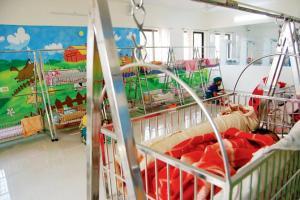
Snehankur Adoption Centre in Ahmednagar
With no income amid the COVID-19-caused lockdown, daily-wage earners, slum-dwellers and prostitutes have been giving up their newborns (aged 15 days to eight months) to an adoption centre in Ahmednagar. The centre is getting calls from around 100 others from Mumbai, Thane, Pune, Nasik, Beed, Aurangabad, etc, asking if the centre can look after their kids till things get better."
ADVERTISEMENT
Dr Girish Kulkarni, founder of Snehalaya, an NGO that runs Snehankur Adoption Centre, a Specialised Adoption Agency (SAA), said, "We are licenced to keep only 30 babies but the number has increased to 38. The additional eight babies came during the lockdown with permission of the Child Welfare Committee. Three of these babies have special needs, one has a hole in the heart. The others are normal health-wise and include those a result of unwanted pregnancies."
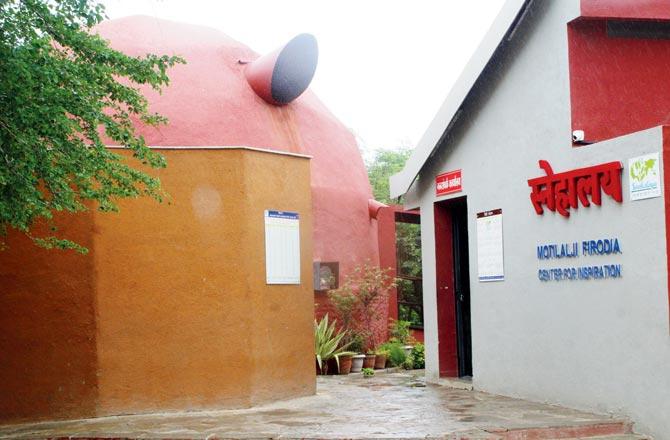
Snehalaya
"We help families with ration kits as we cannot keep the children's families at the centre," explained Dr Kulkarni.
Among the callers are village sarpanches seeking help for kids of the 'vanjari' community. The community members leave their villages to cut sugarcane and this time, some of them got stuck in various places due to the lockdown. "We provided ration kits to hundreds of such affected children staying alone with elderly grandparents," said Dr Kulkarni.
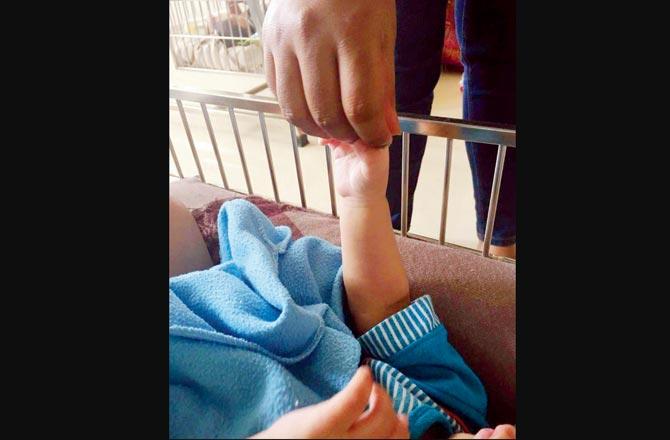
Looks after HIV positive children and infants given up by their parent
The case of prostitutes
"Ahmednagar district has around 3,500 prostitutes, some of whom approached us to help take care of their babies amid lost incomes," said Dr Kulkarni. Approximately 4,000 children are adopted yearly in India, with 800 from Maharashtra. The number has reduced between March and June amid the lockdown. Apart from socio-economic reasons, early child marriage in most parts of Marathwada, poverty, sexual abuse by siblings/known family members, social stigma, etc contribute to children being disowned. Statistics suggest an increase in child sexual abuse cases.
Dr Kulkarni added, "There are also four minor girls at our centre with us in the advanced stage of pregnancy. The girls, their parents are not willing to keep the infant, while the child's father has been arrested."
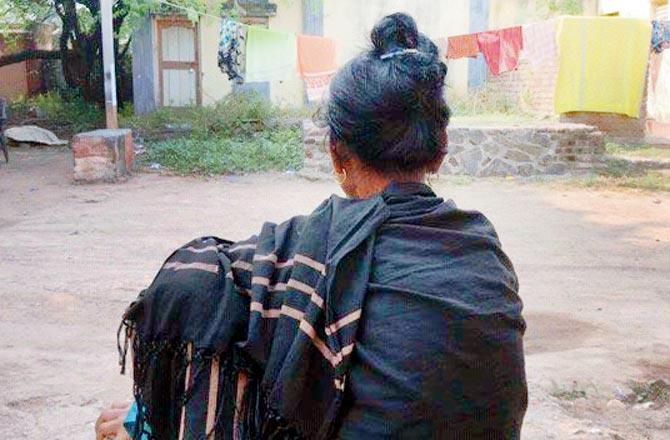
No funds for HIV/AIDS-affected
Snehalaya runs a rehabilitation centre and shelter home for nearly 350 HIV/AIDS-affected children. Neither are the medicines available at government centres, nor are patients able to reach them amid the lockdown. "Without HIV/AIDS medicines, the children are at risk and may slip into Stage II and III and lose the battle. The situation is the same for TB where without medicines children will develop drug-resistant TB. We have somehow managed to get some medicines for the children in the shelter, but other shelters are worse-off," Dr Kulkarni said.
In addition, infected children have also not received the R2,000 HIV/AIDS government allowance. "We wrote to the union ministry of Women and Child Development and to the state's Women and Child Development ministry regarding pending funds worth over R14 lakh but there has been no response. With no government support, it is difficult to meet daily expenses. The only response we get is 'think positive'. We need to think 'practical' too, which they do not understand," Dr Kulkarni said.
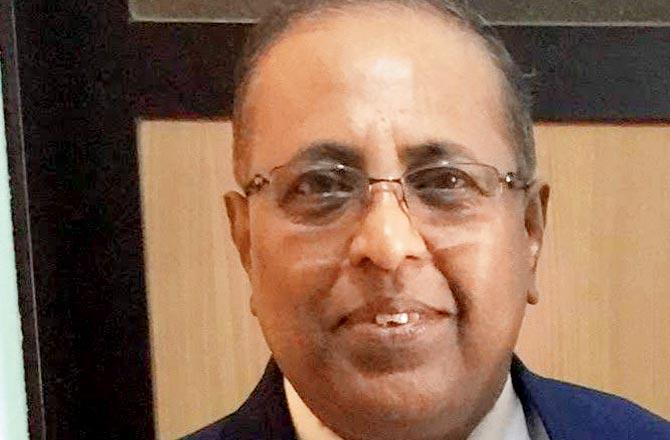
Nishit Kumar, founder, Centre for Social and Behaviour Change Communication
Need to promote foster care
Santosh Shinde, founder, Vidhayak Bharati, a child rights advocacy organisation in Mumbai, said, "We need to promote foster care where instead of being sent to institutional care, vulnerable children are placed with foster parents. Non-institutional care is the most important care for the holistic development of a child and institutional care, even as per law, is the last option."
Expert speak
Nishit Kumar, founder and managing director at Centre for Social and Behaviour Change Communication, said, "India's condition amid the COVID-19 pandemic has resulted in violations of fundamental rights, exacerbated existing vulnerabilities and unleashed a pandemic of hunger and poverty."
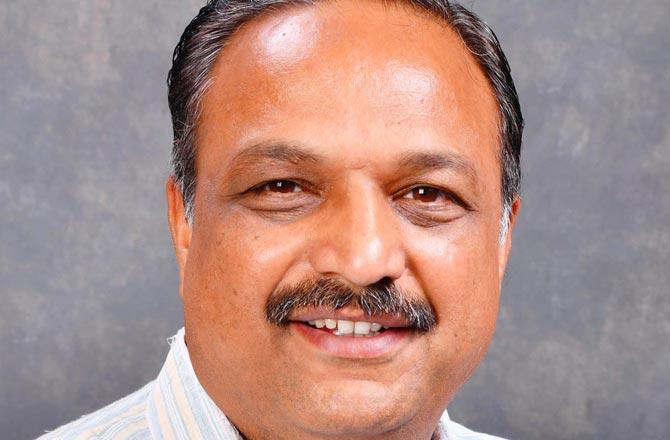
Dr Girish Kulkarni, founder, Snehalaya
"First, children in child care institutions face an enhanced level of abuse. In many states where children were sent to foster homes or homed with relatives at the beginning of the lockdown do not face an uncertain future," Kumar added.
"Secondly, child marriage is on the rise, mainly in rural areas where migrant population is more. Thirdly, there was trafficking of newborns even before the lockdown. Now the situation is more acute with increased violence and abuse at home. And lastly, the digital divide has led to many children missing out on education. This also results in mental health issues among children," Kumar said.
"There is not a single state where the Budget for Children is prioritised. There was a reduction of state expenditure across the board and only health expenditure went up, as they were dealing with the pandemic. However, they did not prioritise child care institutions and Standard Operating Procedures (SOP) to tackle outbreaks amid the lockdown," Kumar said.
Adoption in Maharashtra
India has 432 adoption agencies in the 29 states. Out of the 63 adoption agencies in Maharashtra, 55 are Specialised Adoption Agencies run by private NGOs like Snehankur Adoption Centre. Few of them are run by the Department of Women and Child Development, Maharashtra. The state has pioneered in adoption.
Adoption numbers as per CARA
Year — In-country Adoption — Inter-country Adoption
2015-16 — 3011 — 666
2016-17 — 3210 — 578
2017-18 — 3276 — 651
2018-19 — 3374 — 653
While official statistics are not in, the number of adoptions for 2019-20 is estimated to be around 3,000
Flashback
The first adoption centre in India was started by Savitribai and Mahatma Jyotirao Phule in 1848 and was named Bhrun Hatya Pratibandhak Gruh (Infant Killing Prohibition Centre). They are the first adoptive parents, who adopted a two-month-old boy, Yashwant. Later, a second adoption home was started at Pandharpur in Solapur. It was started by Umashankar Trivedi, the Magistrate at Pandharpur court in 1872 and the centre is still functional; it is known as Navarange Balakashram.
Prajakta Kulkarni, a member of CARA's (Central Adoption Resource Authority) steering committee has raised the issues faced by adoption centres across the country to the union ministry of Women and Child Development. Some of them are:
- CARA has not declared the admission processes of children during the pandemic, nor are government hospitals are informed how to prioritise child treatment and set up special isolation zones for children.
- Because of COVID-19, centres have insufficient staff. Despite every attempt, the staff is not willing to come to work. This will affect quality care of children.
- At many places, doctors and nurses who are the appointed staff of the centre are on leave indefinitely. Day by day, it is getting difficult to tackle the health issues of children in the absence of the medical staff or on video conferencing.
- Adoption centres are facing scarcity of milk powder, food grains and medicines. Many adoption centres are situated in rural areas. After lockdown, it is difficult to purchase medicines, milk powder, food grain from distance as transportation is not available. Many shops are running short of stock and it is possible that in future there will be a serious scarcity of daily needs. In the current situation, it is necessary that children be immediately adopted. This action will save the lives of many children.
Keep scrolling to read more news
Catch up on all the latest Mumbai news, crime news, current affairs, and a complete guide from food to things to do and events across Mumbai. Also download the new mid-day Android and iOS apps to get latest updates.
Mid-Day is now on Telegram. Click here to join our channel (@middayinfomedialtd) and stay updated with the latest news
 Subscribe today by clicking the link and stay updated with the latest news!" Click here!
Subscribe today by clicking the link and stay updated with the latest news!" Click here!






